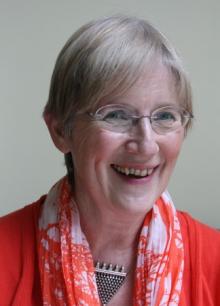You are here
Helen Watanabe-O'Kelly

HELEN WATANABE-O’KELLY is Professor of German Literature at the University of Oxford and Emeritus Fellow of Exeter College, Oxford. She works on early modern court culture, German literature and gender questions. Among her books are Melancholie und die melancholische Landschaft (1978), Triumphal Shews. Tournaments at German-Speaking Courts in their European Context 1560-1730 (1992) and Court Culture in Dresden from Renaissance to Baroque (2002). She has edited The Cambridge History of German Literature (1997), Spectaculum Europaeum. Theatre and Spectacle in Europe, (1580-1750) with Pierre Béhar (1999) and Europa Triumphans. Court and Civic Festivals in Early Modern Europe with J.R. Mulryne and Margaret Shewring (2004). Her most recent book is Beauty or Beast? The Woman Warrior in the German Imagination from the Renaissance to the Present (2010). In 2012 she was elected a Fellow of the British Academy.
Watanabe-O’Kelly’s research will centre on Maria Amalia, Princess of Saxony (1724-1760), daughter of August III, Elector of Saxony and King of Poland, and Maria Josepha, Imperial Princess. In 1738 Maria Amalia married Carlo VII, first King of Naples (1716-1788) (Carlo V, King of Sicily), later Carlos III, King of Spain. Maria Amalia links the German and Polish court of Dresden with that of southern Italy and, in the last year of her life, with that of Spain. While much work has been done on Neapolitan art, architecture and music, the focus is usually on the king and his ministers rather than on the queen. Similarly, scholars of Naples and the Bourbon dynasty are usually experts on French, Italian and Spanish culture, but not on that of Germany. Watanabe-O’Kelly’s research will investigate Maria Amalia’s early years in Dresden, her religious and artistic education and her early influences. It will question Maria Amalia’s involvement in the building of the palaces at Portici, at Capodimonte in Naples and at Caserta and in the founding of the porcelain factory at Capodimonte. Maria Amalia’s interest in archaeology and the excavations at Herculaneum and Pompeii; her influence on musical taste in both opera and religious music; her cultural influence in Madrid in the year before her death; and the extent to which she was receiving political and cultural direction from Dresden and Warsaw during her time in Naples and Madrid will be analysed with a view to forming a nuanced picture of the extent to which she acted as a cultural intermediary between Dresden and Naples. Contrasting Maria Amalia with her daughter-in-law Maria Carolina of Austria, the next Queen of Naples, who has been much more studied, will shed light on the factors that accord or deny a consort a lasting place in national cultural memory.


